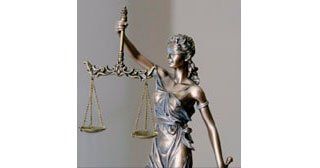
491 Maple Street, Suite 308, Danvers, MA 01923
669 Main Street, Suite 5, Wakefield, MA 01880
1 Monarch Place, Suite 1345, Springfield, MA 01144
Chapter 13 Bankruptcy
People who earn above-median income or who want to protect valuable property will file a Chapter 13 bankruptcy. It is also referred to as a reorganization or a wage earner’s bankruptcy. It is used, most often, by people who have fallen in arrears with their mortgage payments, and are seeking to hold onto their home.
In a Chapter 13 bankruptcy, you propose a plan, subject to court approval, to pay back in monthly payments all or a portion of your debts over a three to five-year period, depending on your income. The minimum amount you will have to repay on your debts will depend on a few factors, such as how much money you make, how much money you owe, the type of debt (secured or unsecured), and whether your unsecured creditors would be paid more if you filed for a Chapter 7 bankruptcy instead. The Chapter 13 trustee both evaluates the case and serves as a disbursing agent, collecting payments from the debtor and making distributions to creditors.
During the term of the Chapter 13 plan, creditors are prohibited by law from pursuing collection activities. Once the plan is successfully completed, the court issues an order of discharge.
Chapter 13 gives you the chance to save your home from foreclosure, because it allows you to stop foreclosure proceedings and catch up on your arrears over the term of your repayment plan. Also, Chapter 13 may allow you to catch up on your payment schedule for other priority or secured debts, like past due taxes and car loans. Chapter 13 can also protect the interests of people who may be co-signers on your loans or other debts.
If you have a second mortgage with a balance that is higher than the equity in your home, the court will allow you to re-classify all or part of it as unsecured debt, and it can be paid like any other unsecured debt under the plan, pennies on the dollar. This relief is not available in Chapter 7.
You can also ask the court to supervise an application for a mortgage loan modification. While a lender cannot be forced to grant a loan modification, the bankruptcy court can oversee the modification process.
Chapter 13 isn’t for everyone. When you file a Chapter 13 case, you'll have to establish to the court that you can afford to pay your monthly household obligations as well as pay into a repayment plan.
Debts cannot exceed certain amounts. The debt limits for Chapter 13 cases as of April 1, 2019, are $419,275 for unsecured debts and $1,257,850 for secured debts. (These are scheduled for revision on April 1, 2022.) If your total debt burden is too high, you'll be ineligible, but you can file an individual Chapter 11 bankruptcy, instead.
Chapter 13 isn't available to companies, meaning that only individuals can file a Chapter 13 bankruptcy. However, business-related debts that you're personally responsible for will be part of your plan, and therefore, from a practical standpoint, a sole proprietorship might be able to benefit from this chapter.
The process of filing and completing a Chapter 13 bankruptcy case is lengthier and more complicated than that of a Chapter 7 case. The above is only an overview of Chapter 13 bankruptcy law. If you find yourself looking for advice and answers, please consider seeking guidance from a qualified bankruptcy attorney. The biggest benefit to you is that an experienced attorney quickly recognizes potential issues that could arise during your case and will plan accordingly.
As experienced Massachusetts bankruptcy attorneys, we would be delighted to discuss your circumstances and options with you.

